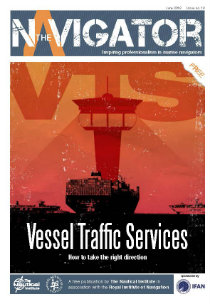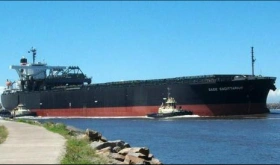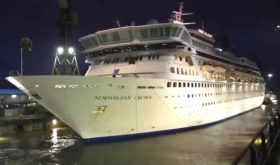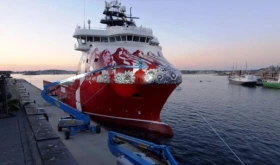The European Community Shipowners’ Associations (ECSA) notes with alarm the growing evidence of the harmful effects of marine litter on marine biodiversity and the environment. At the global scale, it is estimated that nearly 80 per cent of marine litter originates from land-based sources. The rest originates from sea-based sources, including maritime transport which accounts only for a part of it.
ECSA highlights that although the share of the shipping industry in the problem is rather limited, shipowners are fully committed to the reduction of marine litter by putting in place all the necessary measures through the ongoing work of the International Maritime Organisation (IMO) and through the instruments of the International Convention for the Prevention of Pollution from Ships (MARPOL).
ECSA welcomes all the European Union (EU) and Member States (MS) actions towards the reduction of marine litter, however, supports that no other initiative should target maritime transport. With a proper enforcement and appropriate improvements of the EU Port Reception Facilities (PRF) Directive allowing the fulfillment of the MARPOL requirements, all necessary measures will be in place to better manage ship generated waste and cargo residues. IMO at the forefront of the combat against marine pollution from shipgenerated waste and cargo residues.
The European Shipowners are aware of the detrimental effects of marine litter and are fully committed to its reduction. It has been unanimously recognized, that the seabased sources account only for 20 per cent, including shipping (eg. fishing, tourism, transport), offshore mining and extraction, illegal dumping at sea, discared fishing gear. Land‐based sources account for up to 80 per cent of the world’s marine pollution, with the majority of plastic debris from tourism, sanitary or household waste .
Even though the share of the shipping industry in the problem is rather limited, it is important to underline that there are already in place all necessary international measures for the prevention of marine pollution caused by garbage discharged or dumped from ships. The prevention of marine pollution from ships is one of the main concerns of the IMO and the MARPOL Convention constitutes one of the most important
global treaties aimed at protecting the marine environment from all sort of shipgenerated contaminants. The MARPOL Annex V “Prevention of Pollution by Garbage from Ships” was recently revised to introduce a stricter garbage management plan and to general prohibit the discharge of garbage into the sea, especially the disposal of all plastics anywhere into the sea, and severely regulates discharges of other garbage from ships into coastal waters and “Special Areas”.
The need for adequate Port Reception Facilities is compelling
The development of adequate port reception facilities (PRF) for ship-generated waste and cargo residues, together with the establishment of systems which provide incentives for ships to use these facilities, are major elements in the process to avoid ships’ discharges into the sea. The MARPOL Convention not only contains regulations and requirements defining which wastes can be discharged into the marine environment but also imposes an obligation on the State Parties to provide facilities for the reception of ship-generated residues and garbage (that cannot be discharged into the sea). These reception facilities must be adequate to meet the needs of ships using the port, without causing undue delay for ships.
The European Union adopted the Directive 2000/59/EC on port reception facilities, with the aim of substantially reducing discharges of ship-generated waste and cargo residues into the sea. However, the European Shipowners report that there is a lack of adequate PRFs and capacity to meet current requirements targeted to ships. Therefore, ECSA welcomes the European Commission’s initiative to revise the PRF Directive and stress that there is an urgent need to find appropriate way and means to induce EU MS and ports to fulfill their responsibility to provide adequate reception facilities for ship generated waste and cargo residues.
In more detail, firstly, ECSA supports that it would be a sensible step forward in having standardised rules with regard to the segregation of ship-generated waste ashore that all parties could adhere to. Although there is a substantial effort onboard to make sure that the waste is segregated, it is often reported that in numerous ports, garbage is being received ashore into a single receptacle without segregation meaning that all waste landed are treated as contaminated with no associated benefits for the environment. There is no harmonized set of requirements between EU MS on how to sort ship-generated waste for reception facilities and the application of many different requirements causes confusion and certainly frustration on the ship’s crew side.
Moreover, the delivery of ship-generated waste/cargo residues should be promoted by encouraging, facilitating and improving the delivery/treatment process and practices (e.g. communication with port reception facilities, pre-arrival exchange of information and abilities for PRF to collect mixed substances) which will allow MARPOL requirements to be fulfilled. There is an increased demand for ports to take ashore variable operational waste (e.g. ballast water, sewage, dry bulk cargo residues and washing waters, exhaust gas cleaning sludge and washing waters) and therefore the need to develop PRF technology to meet new environmental requirements for shipping is compelling.
Lastly, ECSA advocates that it is essential to have functional, transparent and standardised fee system for the delivery of ship-generated waste and cargo residues. The PRF Directive currently allows EU MS to implement a wide variety of fee systems in the EU ports for these types of waste. However, European Shipowners report that variable charging mechanisms used by several ports is problematic. In some cases it is high and disincentive for ships to discharge ashore while in other cases, the fixed fee is charged but there is no possibility to deliver ashore. Fees have been disproportionate to the delivered waste or size of the ship and the calculation basis varies from port to port. Therefore, ECSA supports that the fee system should be reasonable and transparent without being detrimental towards the vessel and waste types. The system should also offer flexibility in granting an exemption for the ships engaged in scheduled traffic with frequent and regular port calls. The definition of regular service needs therefore to be more flexible and unjustified mandatory delivery is not supported. Especially for vessels engaged in Short Sea Shipping (SSS) with no fixed schedule or published ports of call, the discharging frequency should be correlated to the vessel’s self-sufficiency (i.e. based on incineration capabilities, holding tanks volume) to carry related generated waste on board.
ECSA welcomes the European Union & EU Member States’ action
ECSA welcomes the mobilisation of the EU MS and the EU towards the increase of public awareness on the sources and impact of marine litter while taking the necessary measures for the reduction of marine litter. The very first attempt of MS and key stakeholders to identify the current efforts and set priority actions for the prevention and Management of Marine Litter in European Seas is reflected in the “Message from Berlin”. ECSA fully supports all the priority actions identified including, inter alia, the need to improve the scientific understanding of the sources, pathways and impacts of marine litter as well as coordinate and improve marine litter data collection, increase awareness on marine litter and the recycling rate and promote the development of national and regional waste management plans. ECSA also welcomes the efforts made under each of the Conventions for Europe’s Regional Seas to prevent and reduce marine litter such as developing dedicated Regional Action Plans.
Last but not least, ECSA welcomes the actions taken by the European Commission to reduce marine litter and in particular the initiative to revise the Port Reception Facilities Directive. In addition, ECSA notes that EU is also considering of issuing a new waste/circular economy legislation. Recently, it was also adopted the 7th Environment Action Programme (EAP) which requires, by 2020, the establishment of a Union-wide quantitative reduction headline target for marine litter supported by source- based measures and taking into account the marine strategies established by MS. At the same time, there are substantial efforts made by EU MS to address marine litter as part of their implementation of the EU Marine Strategy Framework Directive and to achieve or maintain good environment status in the marine environment.
ECSA welcomes all these EU and MS actions, however, supports that no other initiative should target maritime transport. With a proper enforcement and appropriate improvements of the PRF Directive allowing the fulfillment of the MARPOL requirements, all necessary measures will be in place to better manage ship generated waste and cargo residues.
This ECSA position paper was initially published in ECSA website and is reproduced here with the organization’s and author’s kind permission.
ABOUT THE AUTHOR
 |
The ECSA position paper, reproduced here with the author’s kind permission, was written by Maria Deligianni, Policy Advisor on Maritime Safety, Environment and Offshore in the European Community Shipowners’ Associations (ECSA) since 2013. ECSA is the trade association representing the national shipowners’ associations of the EU and Norway, 40% of the world fleet by gross tonnage.
|














Leave a Comment